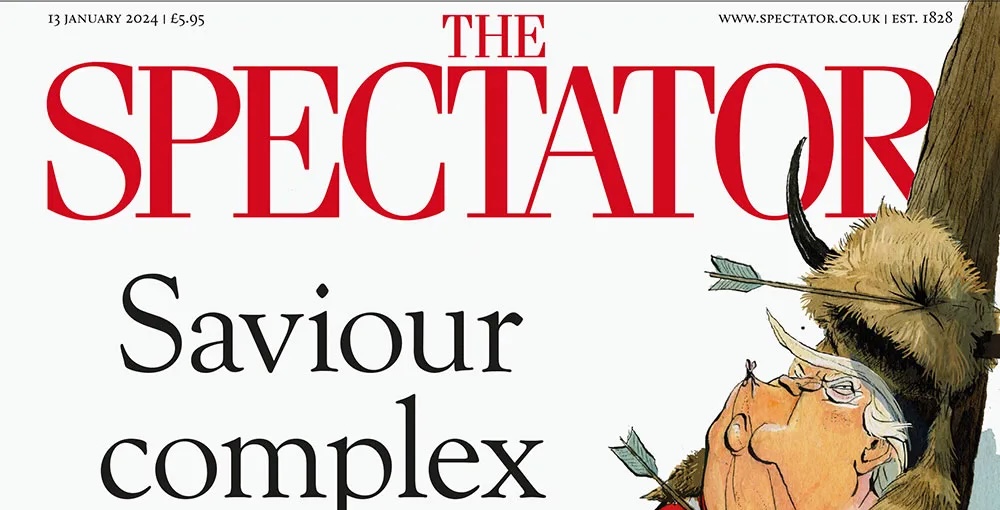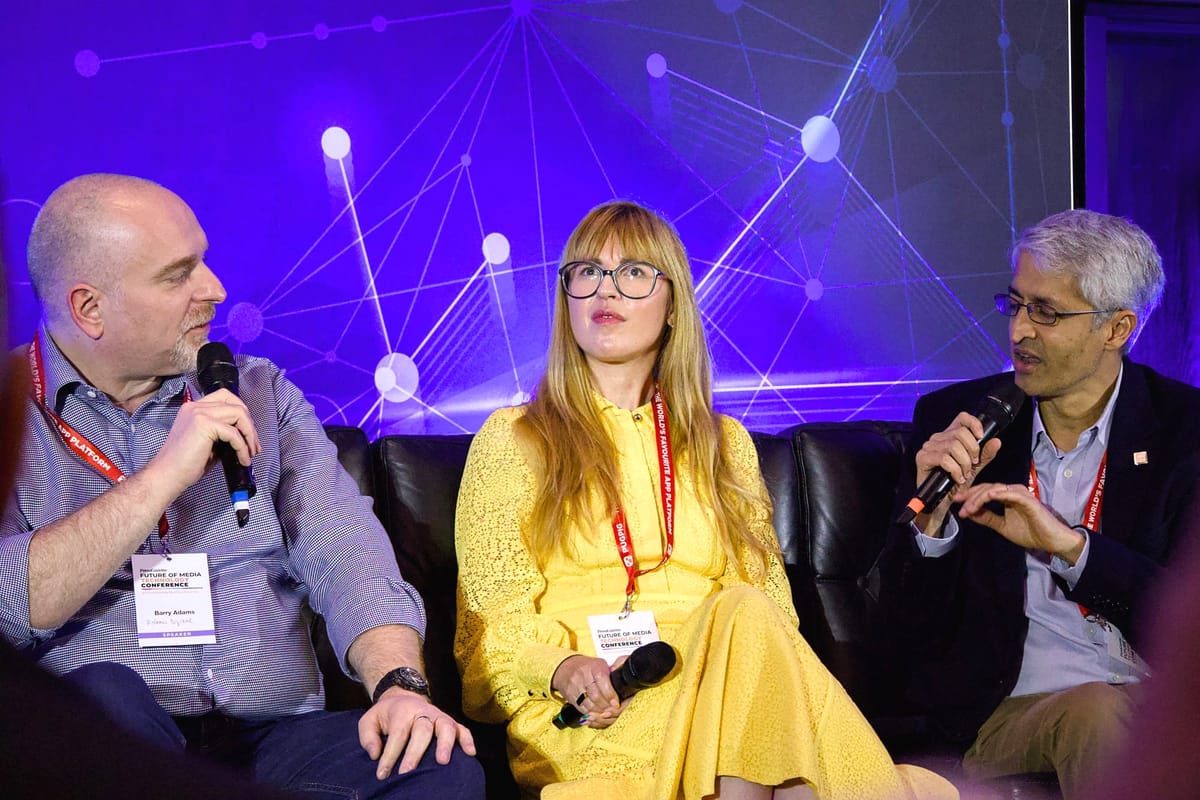- The Publisher Newsletter
- Posts
- Why a solutions-focused community magazine launched a podcast that creates individual connections
Why a solutions-focused community magazine launched a podcast that creates individual connections
Greater Govanhill magazine set out with a mission to help solve the problems of a Glasgow neighbourhood. Its starting point was to listen to the concerns of its residents, but with its award-winning Fonds podcast series, it is letting them tell their own stories to deepen community connections.
Welcome to The Publisher Newsletter, by Media Voices. This week’s podcast is accompanied by a write-up of the key takeaways. This is set out in full below.
This article can also be found on our website, voices.media, so if you prefer to read out of your inbox, just click ‘Read online’ in the top RH corner. These articles have a registration wall, but as you’re already subscribed, you can sign in with just your email address.
Finally, tickets are now live to all our upcoming Publisher Masterclasses up to December. Newsletter subscribers can get an exclusive 20% off using the code MVNL20 at checkout.
This season is sponsored by BlueConic, the operating system that puts data into action for marketing and growth doers. The industry-first solution empowers doers with an unmatched range of capabilities to access relevant customer data, create resonant customer experiences, and drive maximum returns for their business.
More than 500 businesses worldwide rely on BlueConic to unlock their full customer data potential, including Forbes, Heineken, Mattel, Michelin, Telia Company, and VF Corp.
Why a solutions-focused community magazine launched a podcast that creates individual connections
Greater Govanhill magazine set out with a mission to help solve the problems of a Glasgow neighbourhood. Its starting point was to listen to the concerns of its residents, but with its award-winning Fonds podcast series, it is letting them tell their own stories to deepen community connections.
I first came across Greater Govanhill magazine as a judge on the PPA’s Scottish magazine awards. I loved it. It was a beautifully made magazine, but it also felt like it was doing something very different from any community magazine I’d seen before.
The cover flash said it all: ‘FREE’ but in eleven or 12 different languages.
The print quarterly started with a mission. Founder Rhiannon Davies moved to the neighbourhood in 2018 and was struck by the disconnect between the way Greater Govanhill was described in the media and on social media and how it actually was as a place to live.
“It was often described in quite negative terms,” she told The Publisher Podcast. “But I found a really warm, vibrant community with loads of people and projects and activism and people making stuff happen. And there wasn't enough focus on that.”
A magazine with a mission
With a background in journalism, particularly solutions journalism, Rhiannon decided to start a magazine that would try to shift the narrative around Govanhill. “Not to ignore the problems that exist,” she says, “but do it from a solutions focused way so we could actually think about what could be done about some of those issues and provide a platform for voices you don't typically hear in the media.”
There is a long history of migration into Govanhill. The tenements were first built to house people coming from the Highlands and Islands and Ireland. Later, Italian and Jewish people arrived, then people from Pakistan, Bangladesh and Eastern Europe.
“People from all over the world come and make their home here," says Rhiannon explaining that a 2020 survey found that 88 languages were spoken by people who live in the area. “That’s quite amazing, quite unique. I don't think there's anywhere else in Scotland that has such diversity in such a small neighbourhood.”

From print to podcasts
Fast forward four years and Greater Govanhill is more than a community magazine. It has a website, a community newsroom and an occasional radio show. It runs events and workshops and is the driving force behind The Scottish Beacon, a collaborative of independent, community based publications all around Scotland.
Along the way, Greater Govanhill has collected an impressive collection of awards for its work, both in journalism and community organising. One of the most recent was our own 2024 Publisher Podcast Award for a limited series.
However, the award-winning ‘Fonds’ podcast is probably not the kind of audio output you would expect from a community magazine. There are no interviews with local politicians or activists. No mentions of the local fete, sports teams or charity functions.
Instead, across nine beautifully produced episodes, it lets people from Govanhill tell their stories using objects that they love: A mask from Nicaragua, a Tweetie Pie tie from Turkey, a perfume bottle from Syria.
Fonds’ origin story
A key part of Greater Govanhill’s mission was to give a platform to underrepresented voices and the Fonds podcast series delivers on that, literally.
The podcast grew from a local arts project that painted a mural of the word ‘Govanhill’ using patterns found on objects from the homes of members of the community. “I loved that idea, but I wanted to know about the objects,” says Rhiannon.
She began talking to photographer Morwenna Kearsley and between them they devised a project to photograph objects that mattered to people. “It was amazing, the people that came forward… In the first year we had, I think, 25 and maybe another 25 in the second year.
With Govanhill being such a diverse community, a lot of the people that participated were originally from other countries and that brought an extra dimension to the project: “The objects had even more meaning. They connected people to home, to family, some kind of link between them and what they'd left behind.”
Podcasts from process
Inspired by old advertising photography, photographer Morwenna worked in a pitch-black room with an extended exposure. “As she was doing that, over an eight minute exposure, we interviewed the participants about the object. It created this really intimate interview unlike any I've ever done,” says Rhiannon.
Initially the Govanhill team just focused on documenting the photographs. “We put little stories on the postcards and then we put the postcards in shops so that people would go in and collect them all,” Rhiannon explains.
In the second year, however, they realised that they needed to do something more with the stories they had collected. They worked with a local podcast producer to turn the interviews into eight to 10 minute podcasts that simply allow the object’s owner to speak.
“We don't interject, we don't add comment, we don't add anything else,” says Rhiannon. ”We just try and take the listener into that room to understand what it means to hear this story.”
Part of the solution
While Fonds is an extraordinarily beautiful podcast series, it is not solutions-focused. “No, but what links all of our work is listening,” explains Rhiannon, “not just going in there thinking ‘We know how to do journalism. We know to tell a story. We know what the problem is here’.”
She says that when it comes to solutions journalism, that might mean listening to what a local group is doing to tackle a particular issue and then highlighting the work they are doing. With Fonds, it’s listening to stories that create empathy. “One of the big things that we're trying to do with Greater Govanhill is break down some of the barriers that exist between people.”
Rhiannon describes how the people might be walking down the street and see someone from one of the Fonds episodes and feel that they know something quite personal about them. “That's quite a nice feeling, to suddenly have these connections. For me, building connections in your neighbourhood is the first step to making change happen.”
The mechanics of community
Listening has been a huge part of Greater Govanhill’s community building strategy. Before launching the magazine Rhiannon says she talked to anyone that would give her the time about what they would like from a local magazine. From there she used everything from online surveys to drop-in events to understand what her audience wanted.
“Now we're four years on and what we've been doing for the past couple of months is just actually saying, ‘let's have a pause and let's go back and do that again’. Things have changed.”
Rhiannon says listening gives people the sense that they are valued and encourages them to buy into whatever project you are managing. However she warns that it can’t be a box-ticking exercise. “We're not just doing it to say that we've done it. We're actually listening.”
She acknowledges that, working in a local community, it may be easier to gather your audience together than if you work across the UK or internationally. But, she says it is possible. “Invite people in digitally or through phone calls. It might be on a Zoom. Giving people that sense of belonging and ownership and connection, not just to you, but also to each other, has really helped.”
Sponsored by BlueConic, your all-in-one customer data solution. Go from data to insights to action with BlueConic’s fully integrated customer data operation system. Learn more at BlueConic.com, where data is for doing.









